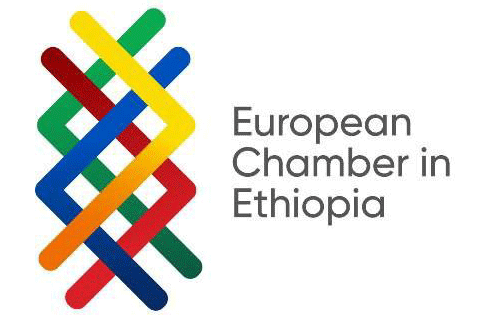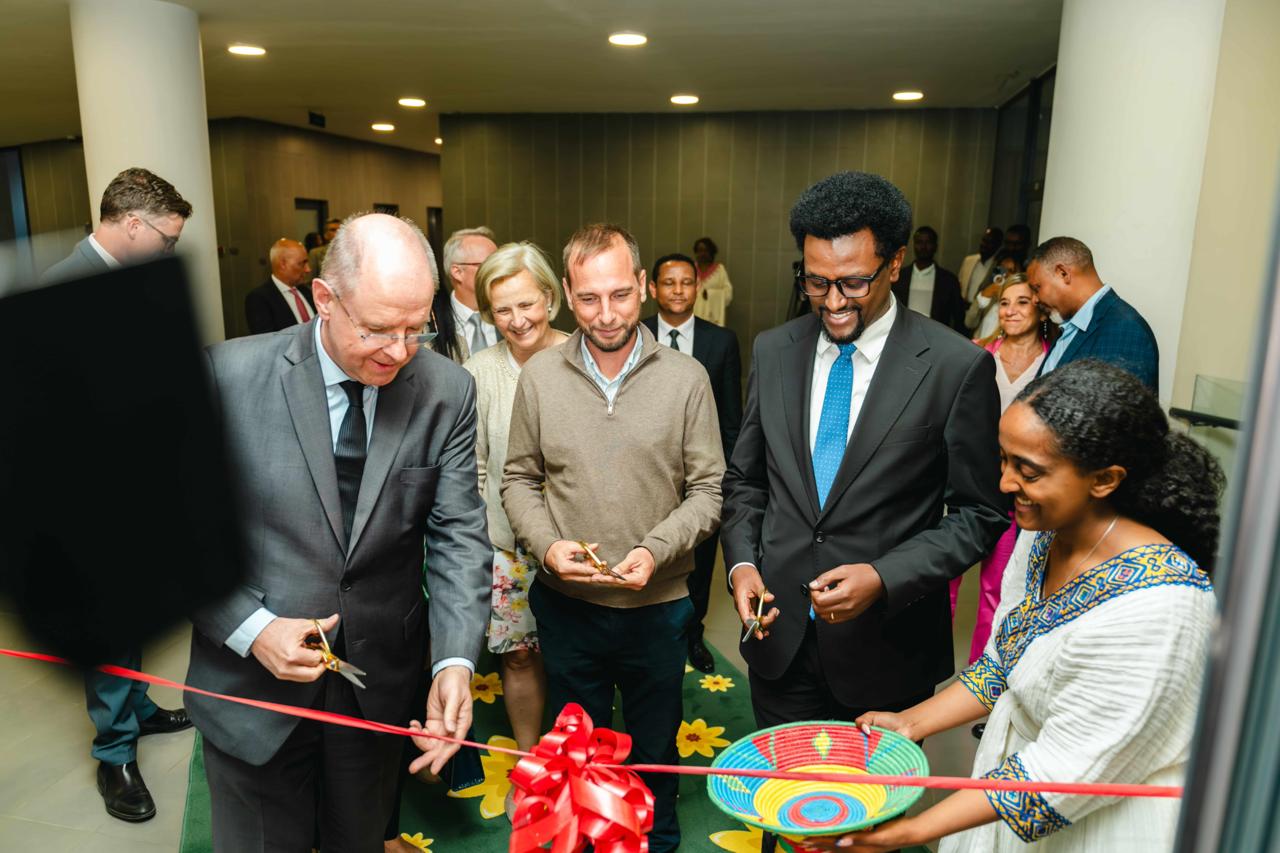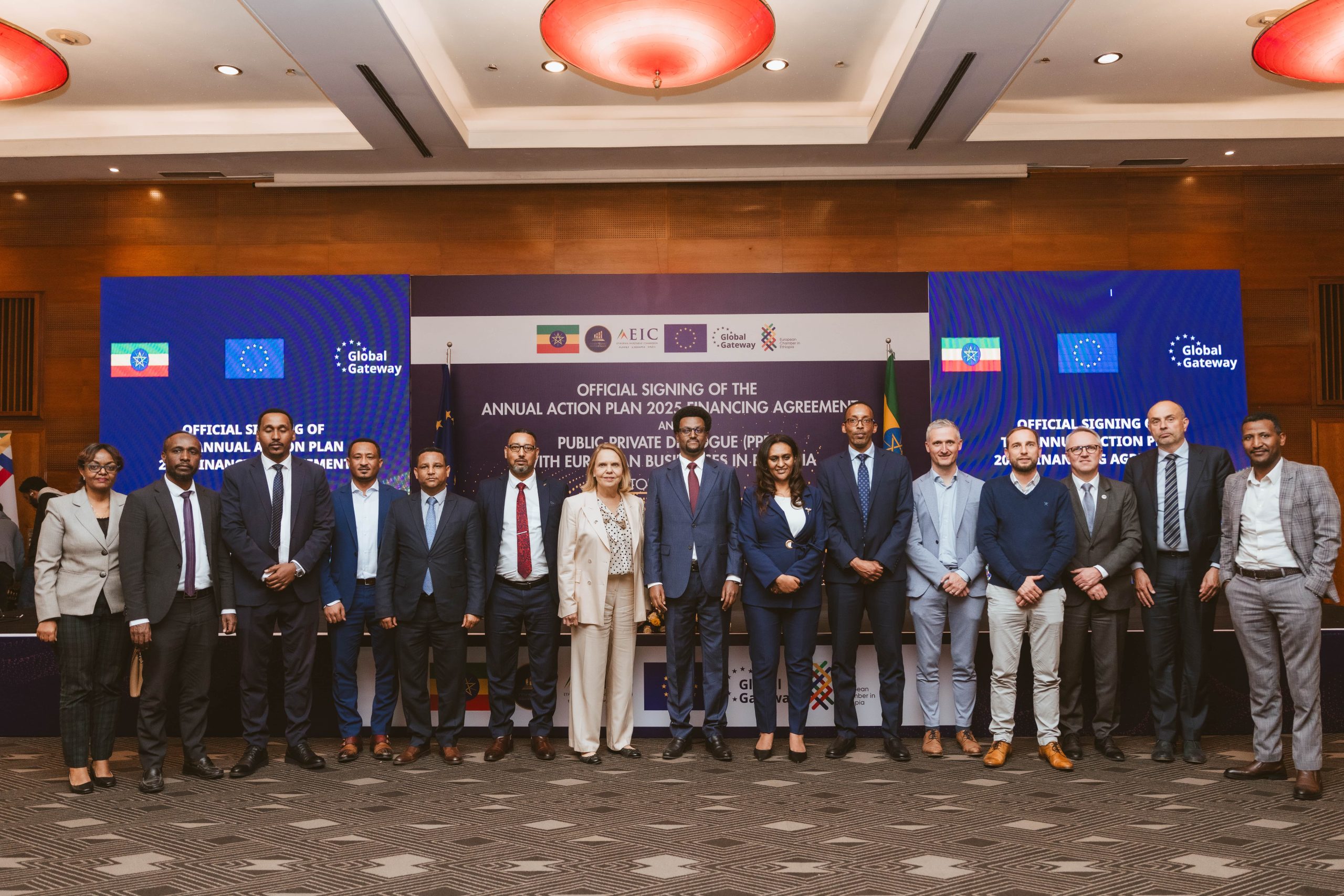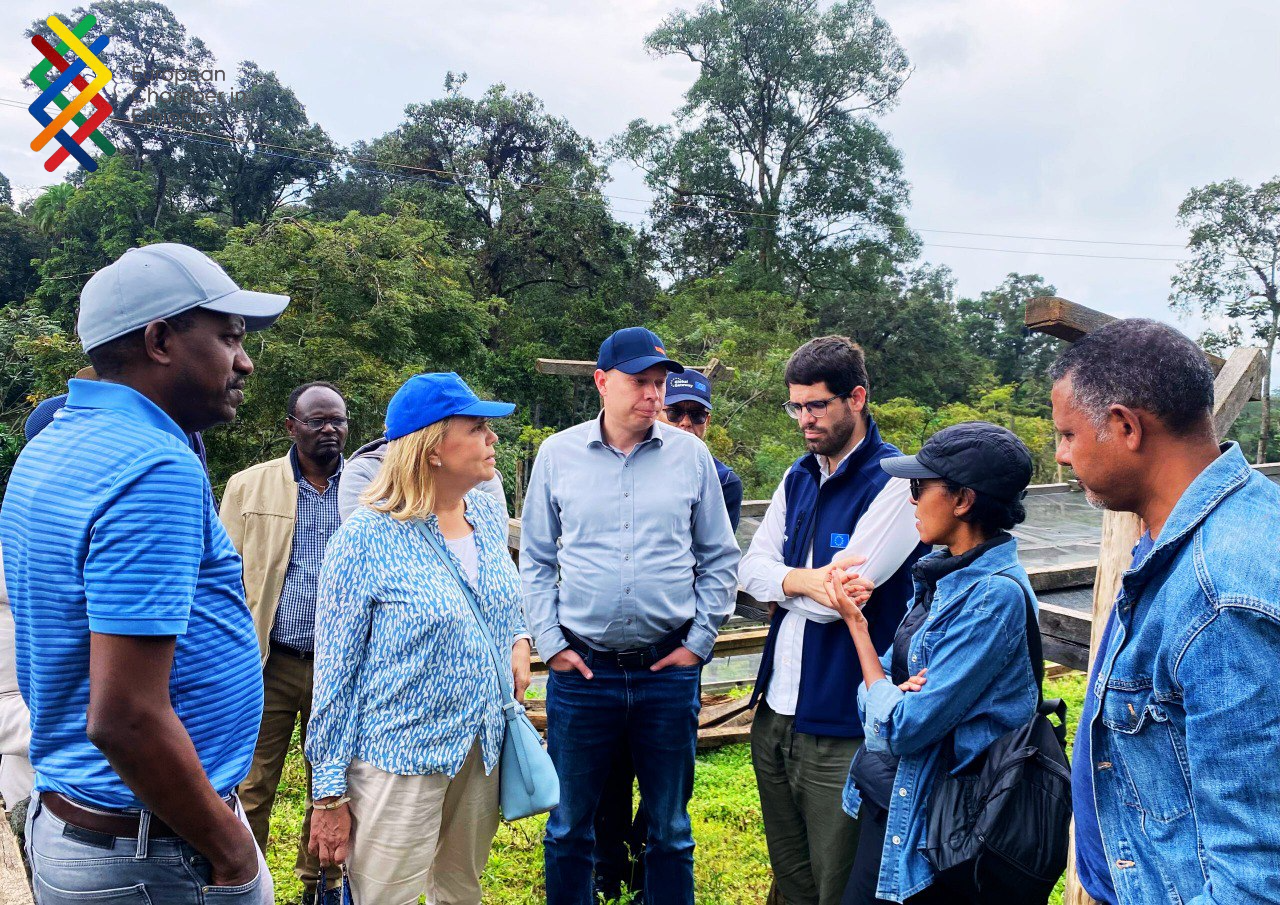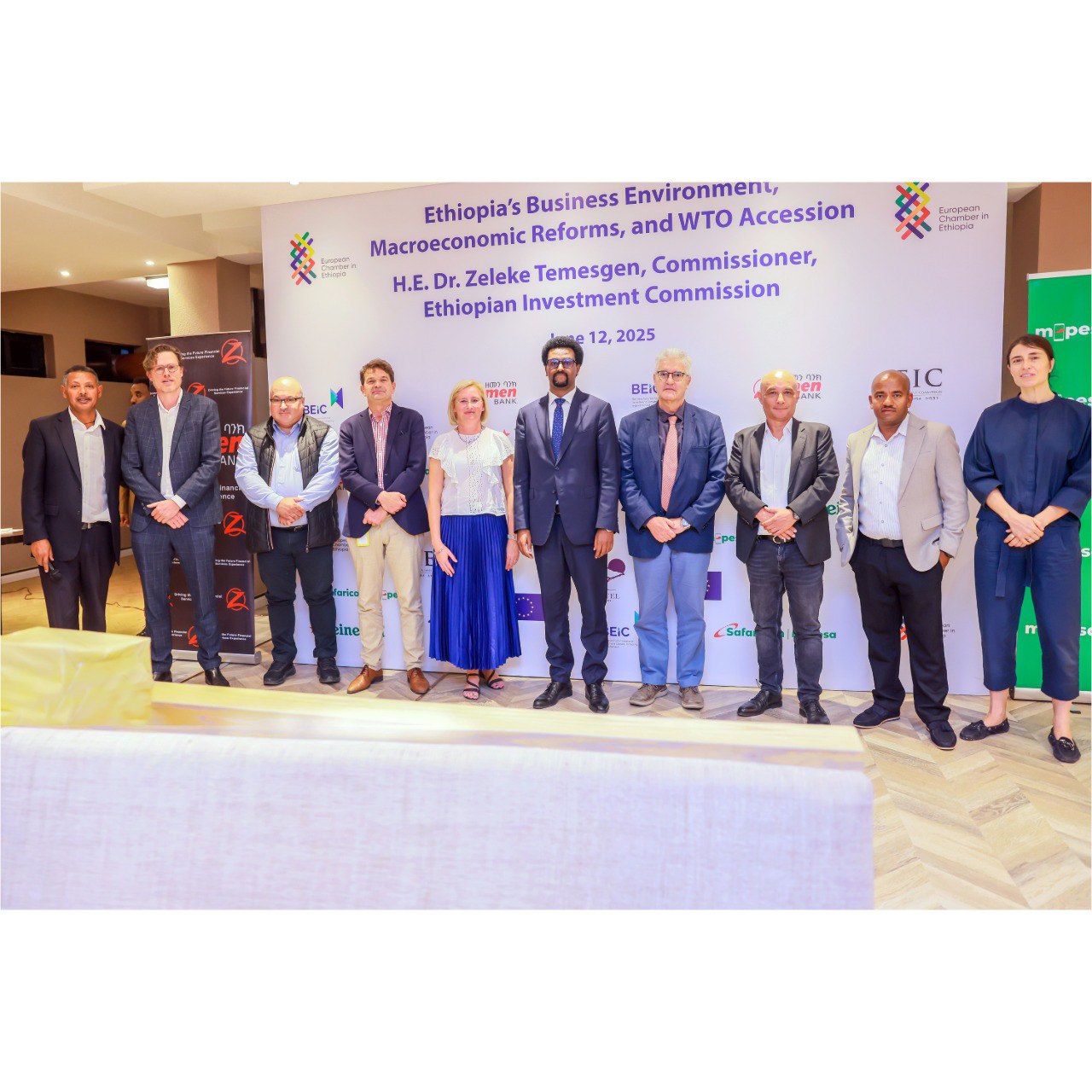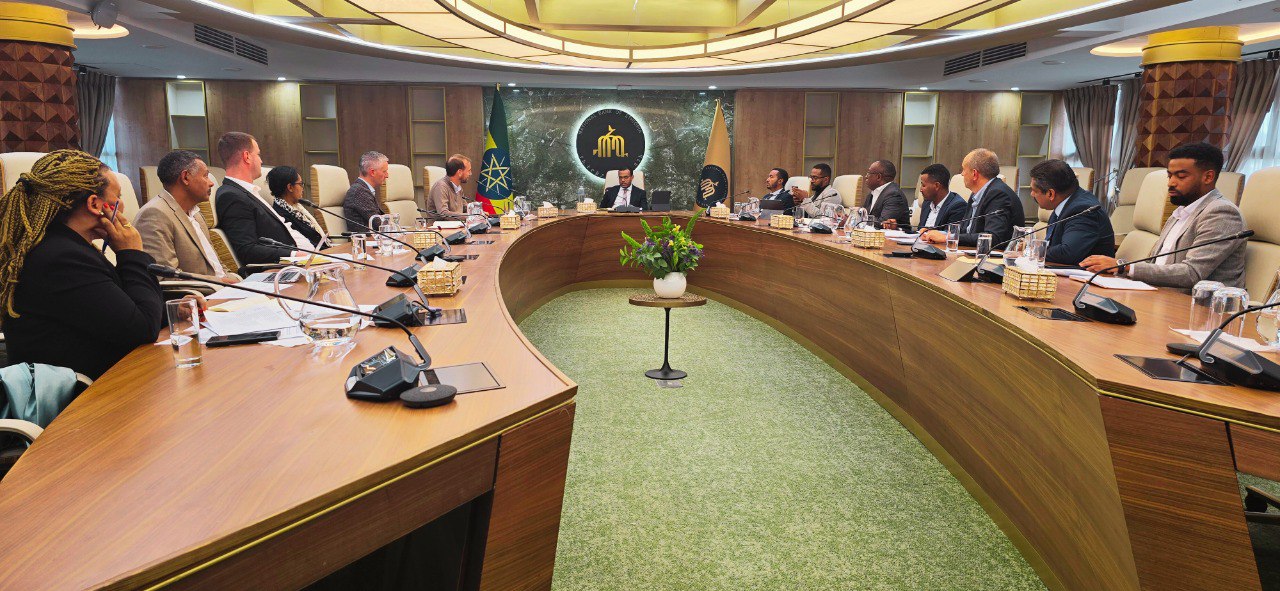
EuroCham Conducted Technical Discussions with Outgoing NBE Governor
Outgoing NBE Governor Mamo Mihretu reported record foreign exchange growth and falling inflation, as EuroCham members acknowledged progress while raising new business issues.
Ethiopia’s foreign currency reserves have reached a historic high, the outgoing Governor of the National Bank of Ethiopia (NBE), Mamo Mihretu, told members of the European Chamber in Ethiopia (EuroCham) during a technical meeting on August 28, 2025. “Ethiopia has recorded its first positive balance of payments, with foreign exchange reserves tripling over the past year,” he said. EuroCham members welcomed the progress of ongoing macroeconomic reforms while also raising new issues affecting the business environment.
Ethiopia’s foreign currency inflows rose from US$24 billion last year to US$33 billion this year, driven by higher exports, remittances, and services, according to the outgoing Governor. This has allowed the country to prioritize strategic imports such as fertilizer and fuel. “For the year to come we are even better than we were last year because we now have the tools and instruments to manage our monetary policy more effectively,” he added.
The Governor reported progress in curbing inflation, projecting single-digit levels for the next fiscal year. He noted that credit growth, recorded at 23 percent this year, remains aligned with the Central Bank’s stability objectives. “For the first time in 12 years, there was no credit from the central bank to the treasury. This discipline supports our price stability objective,” he said.
EuroCham Board Chair Ben Depraetere expressed appreciation to the National Bank of Ethiopia, and in particular to Governor Mamo Mihretu, for his spirit of collaboration, openness, and consistent engagement in improving the investment climate. “We commend the major reforms taken over the past year, from the transformative foreign exchange directive to broader financial sector liberalization and institutional strengthening. These are sending the right signals to the investment community,” he said. EuroCham members acknowledged Ethiopia’s progress in foreign reserve growth and macroeconomic reforms, while emphasizing that sustained dialogue with the National Bank is key to addressing ongoing business concerns.
EuroCham members acknowledged improvements in foreign exchange transparency and the resolution of long-standing concerns, while also underlining the need for further reforms. Since the previous technical meeting in March 2024, 13 of the 16 issues raised by EuroCham members have been resolved. Access to foreign exchange has dramatically improved and EuroCham members confirmed that nearly all backlogged dividends have been repatriated which is a historical feat.
Eleven new issues were tabled at this session, ranging from challenges caused by the huge deposit requirements by local banks in case companies seek substantial amounts of foreign exchange, persisting challenges with Franco Valuta privilege for manufacturers, to container shortages and the impact of the recent withdrawal of horticulture investment incentives.
EuroCham also discussed the pressing topic of FX denominated loans causing financial losses due to the substantial devaluation triggering recapitalization requirement and requested a long-term solution for affected FDI companies facing challenges in renewing their business license.
They flagged cash flow constraints caused by advance tax payments and requests by local banks to make huge local currency deposits to access substantial amounts of forex, as well as steep repayment costs on foreign currency loans due to the depreciation of the birr. Investors requested clarity on the exchange rate used when converting foreign loans into equity during capital registration.
The coffee export sector called for adjustments to the weekly minimum coffee export price set by the Coffee & Tea Authority, describing it as uncompetitive. The Governor acknowledged these distortions and confirmed the matter is under review at the macroeconomic level. Logistics challenges were also highlighted, including the mandatory use of Ethiopian Shipping and Logistics (ESL), shortages of 20-foot containers, and delays in repatriating manifest charges. Members suggested allowing private shipping lines to hold local forex accounts to cut costs and speed up documentation.
The horticulture sector raised concerns over the sudden removal of duty-free privileges for capital goods without consultation or transition, exposing companies to taxes of up to 92 percent on shipments of capital goods already in transit. Businesses warned that this policy change threatens competitiveness of the sector and harms investor confidence.
Governor Mihretu reaffirmed the Central Bank’s commitment to working closely with investors, describing the reforms as part of a longer-term effort to strengthen the economy. “We want to see more investment coming to this country and we will do our part in creating a competitive investment climate. We have been proactively responding to requests from investors,” he said.
EuroCham members welcomed the Governor’s readiness to address issues directly and recognized the Central Bank’s efforts to clarify regulations and adapt policies where needed. Both sides agreed that raising such concerns, while acknowledging progress, is part of their shared commitment to building a stronger and more predictable business environment. They also agreed to convene subsequent technical meetings as a platform to drive solutions and sustain reform momentum.
latest News
EuroCham Launches a New Office and FDI Incubation Center
February 1, 2026
EU and EuroCham Sign Grant to Boost Ethiopia’s FDI competitiveness
November 22, 2025
EuroCham Networking Event Discusses New Income Tax Law
October 22, 2025
EuroCham Urges Reconsideration of EUDR Timeline
September 29, 2025
